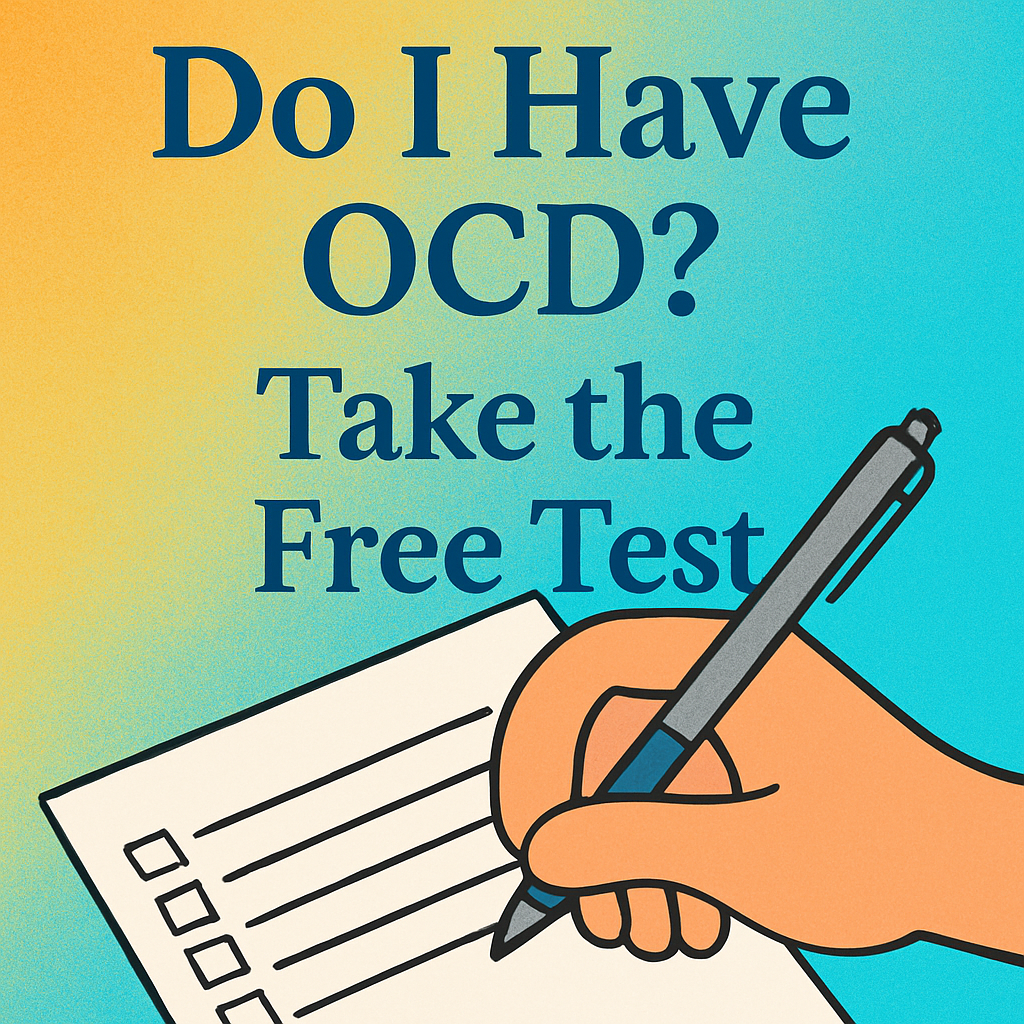Do I Have OCD? Take the Free Test
Therapy For OCD in Madison, Mississippi
What is OCD? Read This First!
OCD, put most simply, is a worry trick and a false alarm. Most people experience occasional fears that cause them to feel anxious or behave in ways that are uncharacteristic of them, but these are typically short-lived and only require small amounts of reassurance to overcome. Adults and kids with OCD (and some other anxiety disorders) go beyond just thinking about the thing they are afraid of temporarily. Instead, they are bothered by unpleasant thoughts or images that repeatedly enter their minds, worry excessively about terrible things happening, worry about acting on unwanted or senseless urges and impulses, and feel driven to perform certain acts over and over again. In the assessment linked on this page, you’ll see examples of all of these things. Almost all of us do some of these things some of the time. We’re all “a little OCD.”
Page 2 of the assessment is what really determines if you have OCD that needs treatment from someone who has training and experience in the disorder. Please note the disclaimer: “Keep in mind, a high score on this questionnaire does not necessarily mean you have an anxiety disorder — only an evaluation by a health professional can make this determination.” I would say that if you score at least a 1 or a 2 on any of these categories, then you need to be evaluated by someone who specializes in OCD. Especially if you are spending at least an hour a day being consumed with the thoughts and behaviors you identified on Sheet 1 (or really obsessing over anything in particular), if the thoughts and behaviors cause distress, if it’s hard to control the thoughts and behaviors, if they cause you to avoid things that matter to you, and if they interfere with the things and people that matter to you.
After taking a look at the assessment, do you feel like this is you, your teen, or your child? There’s good news. OCD is treatable if you can find a clinician who has the training and experience to handle it.
Some Facts About OCD and OCD Treatment [1]:
OCD is not just someone who has a lot of preferences. OCD is when thoughts and compulsive behaviors become problems that affect someone’s life.
The right kind of CBT for OCD (Exposure and Response Prevention) is shown to be nearly 80% effective.
OCD is the fourth most common psychiatric condition in the U.S.
Boys often show OCD symptoms before girls, but females often catch up around typical childbearing age.
There are typically 7–12 years between symptom onset and diagnosis. This can often make OCD harder to treat as the habits have had time to grow.
Depression responds about 30% to placebo. OCD does not respond to placebo. You have to treat it at some point.
Twenty percent of kids with OCD also have ADHD, and ADHD symptoms often decrease with OCD treatment.
Sometimes what looks like ADHD symptoms is actually OCD
Approximately 33% of kids diagnosed with autism will also have OCD.
Anorexia is often associated with OCD, but bulimia is less often associated.
Emetophobia (fear of vomiting) and Body Dysmorphic Disorder (BDD) are closely related to OCD and require similar treatment.
Pediatric Autoimmune Neuropsychiatric Disorder Associated with Streptococcus (PANDAS) is acute-onset OCD associated with Group A Strep infection. READ MORE
Average IQ for those with OCD is estimated to be 6 points higher than the rest of the population.
If one parent has OCD, there is a 10% chance that each child will have it.
In treatment, we don’t “unlearn” fears. We learn things that can “override” those fears.
If you have a child with OCD, there’s a 60% chance of finding a family member with OCD.
OCD treatment with kids works best when families are heavily involved—not the dry cleaning drop-off model.
Sometimes kids present with OCD differently, with these three categories being common: fear of some thought or situation, needing something to be “just right” with no apparent fear, and simple disgust that significantly interrupts life.
The older you get with OCD, the greater the risk of co-occurring depression.
OCD Test Links
Sources
[1] All statistics come from my training at International OCD Foundation’s Behavior Therapy Training Institute (BTTI) READ MORE
About Tyler Slay
Tyler Slay, LPC, is a licensed professional counselor based in Madison, Mississippi. He specializes in treating Obsessive-Compulsive Disorder (OCD), anxiety disorders, and trauma. Tyler offers Christian counseling for clients who want therapy to align with their faith or who are seeking a faith-integrated approach to mental health.
He has completed advanced training through the International OCD Foundation and uses evidence-based treatments including Exposure and Response Prevention (ERP), Cognitive Behavioral Therapy (CBT), and Acceptance and Commitment Therapy (ACT).
Tyler provides therapy for children, teens, and adults across Mississippi, both in person and via telehealth. He also works with clients struggling with perfectionism, boundary-setting and assertiveness, family conflict, pornography, anger, failure to launch, relationships, depression, autism (Asperger’s), social skills, tics, PANS/PANDAS, body dysmorphic disorder (BDD), and body-focused repetitive behaviors (BFRBs), including skin picking & hair pulling disorders.
Click here for more information.

